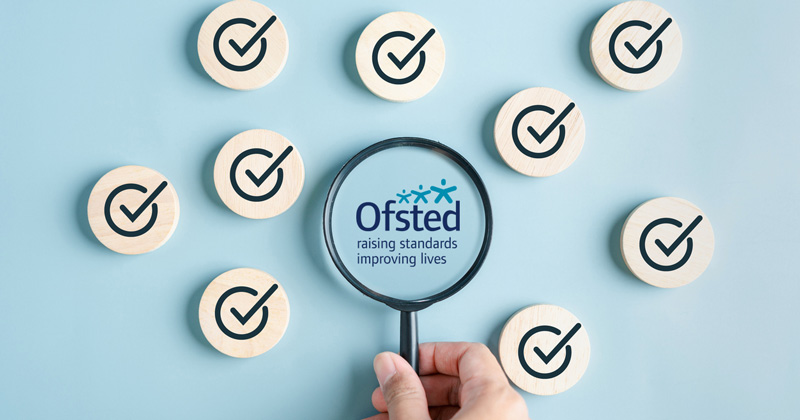Ofsted will not assess schools’ use of AI “as a stand-alone part” of inspections – but the tech’s impact on outcomes for youngsters will be looked at.
Guidance published by the watchdog this morning reveals how it will evaluate schools’ use of such tools.
The inspectorate has also released new research into so-called AI “early adopters” schools – which revealed that some are developing their own chatbots.
Ofsted chief Sir Martyn Oliver said: “As the use of AI in education increases, we need to better understand how schools and colleges are using this technology to take advantage of its potential, as well as manage the risks it poses for pupils, learners and staff.”
AI not standalone part of Ofsted checks
The new guidance states inspectors will not look at schools’ use of the technology “as a stand-alone part” of their assessments and won’t “directly evaluate” its use.

Part of the reason for this is Ofsted does not “not have the evidence we would need to define good use of AI for the purposes of inspection or regulation”.
But Oliver stressed the watchdog “can consider the impact a provider’s use has on the outcomes and experiences of children and learners”.
Any evaluation “of the use of AI will ask whether the provider has made sensible decisions”.
As part of this, inspectors could ask how leaders ensure any use “supports the best interests of children and learners”.
Assessing AI’s risks
When any AI is used by children in school or at home, inspectors will assess if this is being done in their “best interests”.
If pupils are deemed to be using it “inappropriately, inspectors may evaluate how the provider has responded and addressed the impact of this”.
The guidance says that while the risks associated with the tech “will not be evaluated separately in our inspections, they will be addressed when they have implications for areas that are already considered”.
This can include data protection, safeguarding and bias and discrimination.
“Any evaluation that Ofsted makes is about the provider’s decision-making, what they have considered, and the impacts on children and learners, not about the tool itself,” the guidance says.
“Inspectors only need to consider AI when it is relevant to something specific in their evaluations.”
‘Early adopter’ research
The guidance was informed by research, also released this morning, into how 21 “early adopter” schools, colleges and MATs are integrating AI into teaching, learning and admin.
Most of them had an “AI champion” charged with getting staff to “embrace” the tech. They typically created a “buzz” and “played a vital role in demystifying” it to address “anxieties and build confidence”.
In larger settings, they would bring “together their data management teams, IT systems managers and curriculum leads” as AI “requires skills and knowledge across more than one department”.
Its use was usually divided between those wanting to cut workload and those who wanted it to “directly” support learning.
But the researchers found this “often shifted with time”.
A few of the leaders were already developing and testing “their own AI chatbot, while others were in the process of doing so”.
Some also highlighted how tools “allowed teachers to personalise and adapt resources, activities and teaching for different groups of pupils”, including young carers and refugees.
Monthly policy changes
However, most were “at the early stages of developing a longer-term strategy” on how to integrate AI into their curriculums as they had not yet considered how to combine it with pedagogy.
One of the reasons for this is there are “not many… tools tailored to individual school or college contexts”. Some school bosses also had not thought “strategically about what success with AI looked like or how to evaluate its impact”.
Leaders were said to be “clear about the risks of AI around bias, personal data, misinformation and safety”.

Some had a separate AI policy, while others added it to “relevant existing policies including those for safeguarding, data protection, staff conduct, and teaching and learning”.
But “the pace of change meant that many leaders were updating their AI policies as often as monthly”.
Sarah Hannafin, of the National Association of Head Teachers, said leaders and teachers “certainly need training and guidance in order to feel confident using AI”.
“The technology should be introduced gradually in order to maximise its potential and mitigate the risks.
“These tools cannot replace the judgement and specialist knowledge of a human expert, and it is crucial that teachers retain professional oversight.”















Your thoughts